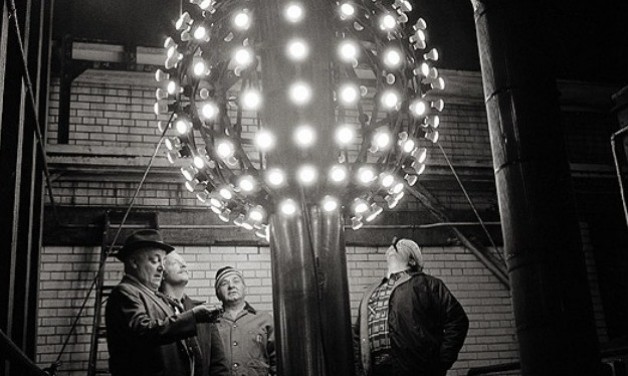Perhaps more than any other time of the year, New Year’s reminds us that we’re not sure exactly what we want.
The day has always felt a little out of place. Right when the Christmas holiday is drawing to a close, men of goodwill resume their morning commute, return to their offices, consult their calendars, see that they need a new one, and . . . throw another party! After the magic and the revelry at the arrival of the Christ child, the advent of a new calendar year always seems to pale in comparison.
Yet leaving aside the midnight gatherings and toasts and all, New Year’s remains the most popular occasion for us as Americans to examine our lives and form resolutions to make them better. Just how to get them to improve is the catch. We can’t seem to keep our resolutions for very long, and we struggle to formulate them in the first place.
We don’t simply want general things like happiness or peace or beauty, but specific ways to have these. We want a perfect fix, but we don’t know what that is. And even if all our dreams came true, we don’t even know all the consequences that would follow. Even our efforts to construct the perfect Christmas can leave us exhausted from one too many in-laws or one too many Scottish shortbreads. Universally, we want life to be better, but we don’t know what that means.
I’ve often wondered, if only our resolutions were more dramatic, they might have a good, strong effect before they lose steam: Perhaps a husband and wife could fan the flame and make it a weekly ritual to take up the poetry of Elizabeth Barrett Browning, stand upon chairs in the living room, and volley to one another, “How do I love thee? Let me count the ways.” I have even heard of a college couple resolving to go barefoot for reasons of solidarity and humanitarianism. Maybe this could make us a tinge more thankful before reverting back to shoes when the “going” got tough. We might even consider the unthinkable and give up drinking soda; then at a low cost we could begin growing live kombucha cultures in our kitchens—a popular and healthy mushroom-tea alternative!
As much as I sympathize with all of these possibilities (originating, as some have, from my own imagining), I’m not convinced we’d be better off having tried them; just as I’m not convinced by standard measures like diets (see the newest craze, Paleo Diets), or a trial membership to LA Fitness, or even trying “harder” to be more virtuous and more loving to the people in our life.
What might make a difference then? Pondering this question calls to mind a line about God I read years back that has always intrigued me:
“His love is…our guarantee of the existence of what we only vaguely sense and which nevertheless, in our deepest self, we await: a life that is ‘truly’ life.” (Spe Salvi, 31)
Here, the pope makes clear that our need for “deep” happiness can only be answered by God. Every one of us feels there must be something “more.” Only the words from the lips of Christ remind us of a life far greater than our own ideas for improvement. “We have come to know and to believe the love God had for us.” (1 Jn 4:16)
Then how do we grow closer to Him? The good news is that the solution is not one thing, but any one thing. So long as we determine to carve out consistent time from our busy schedules for God, we can grow. And the more tangible the better: Physically showing up at Mass, receiving the Sacraments, opening the actual text of the Gospels and spending twenty minutes with them, performing corporal works of mercy, etc.
Jesus tells us clearly, “Seek first his kingdom and his righteousness, and all these things shall be yours as well.” (Mt 6:33) We cannot make ourselves good, but time spent with God makes all else possible. And sometimes it’s just giving that little piece of time that can be a first great step for a new year. Then our resolutions avoid being self-focused as we invest ourselves in the most important relationship of our life: our relationship with God! When it comes to the human heart, Christ alone is adequate.
✠
Image: First New Years Eve Ball (1907)







